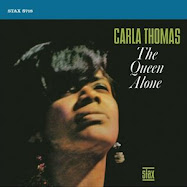Soul balladeer Will Downing believes in the showbusiness saying the show must go on.'
And that was his attitude as he recorded his new CD, After Tonight.
He recorded most of it from a wheelchair or lying in a hospital bed.
"I needed to do this CD for my fans who have come to expect new product from me every two years as well as for me to prove to myself that I could do it," Downing told JET. "Honestly, as the illness progressed I thought that I would never sing again."
The popular singer was diagnosed in January with a rare, incurable disease known as polymyositis. Today, he is unable to walk and uses a wheelchair.
"This disease basically took away my ability to function on my own, using any of my own limbs or even the ability to walk.
"It's a muscle debilitating illness, it takes away all of your muscles from your feet to your head," he explains. "You are dependent on others to do everything for you. There was a point where I could not feed myself. My wife, Audrey, has been a real trouper throughout the whole process."
He is in physical therapy and is learning how to walk again. "Thank God I've been through the worst of what this disease has to offer. It's a very emotional disease as well. It will depress you to the worst of depth. I have been to the pity party. 'Why me?' But that's over now."
He says there were no real symptoms, that the illness appeared out of nowhere. "It just jumped on me."
He remembers feeling very weak at a Chicago concert last December at the Park West theater. "I was so tired on stage. I told the audience, 'I am just not feeling 100 percent here.'" He eventually went to the doctor when he found himself too weak to turn the steering wheel of his car. He ended up spending five months in the hospital.
The amazing thing is, Downing, who turns 44 on November 29, sounds just as vibrant as he has on his other recordings. And his new CD debuted at No. 1 on the Billboard R&B Albums chart.
Highlights on the new CD include the title track; Phyllis Hyman's No One Could Love You More, featuring Gerald Albright on sax; Bill Withers' You Just Can't Smile It Away and the gospel tune, God Is So Amazing.
"You have to do what you got to do. It was a rough recording process. The performances are extremely heartfelt. It stands up to anything I have done in the past. I am really proud of it."
He adds, "It's about perseverance, it's about surviving and giving your all at all times. That's all I did. It was a gift God gave me to sing."
Rex Rideout, co-producer of After Tonight, recalled: "I am deeply touched by the trust that Will placed in me. My job was to help make After Tonight the best possible representation of Will's artistry during this challenging space and time ... Knowing how difficult this process was becoming for him, I kept asking, 'Are you sure you can do this?' He always responded, 'Man, I got it.'"
Downing says, "God's love for me is getting me through these interesting times. I've come to deal with these circumstances but not accept them, as I know I will overcome this illness. No matter what, all things are possible to those who believe."
What Is Polymyositis?
Polymyositis (pol-e-mi-o_Sl-tis) is an uncommon, chronic disease that causes inflammation in the muscles. It affects skeletal muscles (those involved with making movement) on both sides of the body. The most noticeable characteristic is muscle weakness, especially in the muscles closest to your trunk, such as your shoulder and hip muscles. As a result it may be difficult to get out of chairs, climb stairs, brush your hair or work with your arms over your head. It can occur at any age, but it mostly affects adults in their 40s and 50s. It usually develops gradually over weeks or months, Most cases are in adults between the ages of 31 and 60. The cause is unknown. There is no cure for polymyositis, but the symptoms can be treated. Options include medication, physical therapy and exercise.
Source: MayoClinic.com and National Institute of Neurological Disorders and Stroke
By Clarence Waldron
JET MAGAZINE
Gil Scott-Heron - Black Wax
-
BLACK WAX is a musical-political entertainment film produced and directed
by Robert Mugge. It centers on the late African American
poet-singer-songwriter ...










.jpg)



















No comments:
Post a Comment